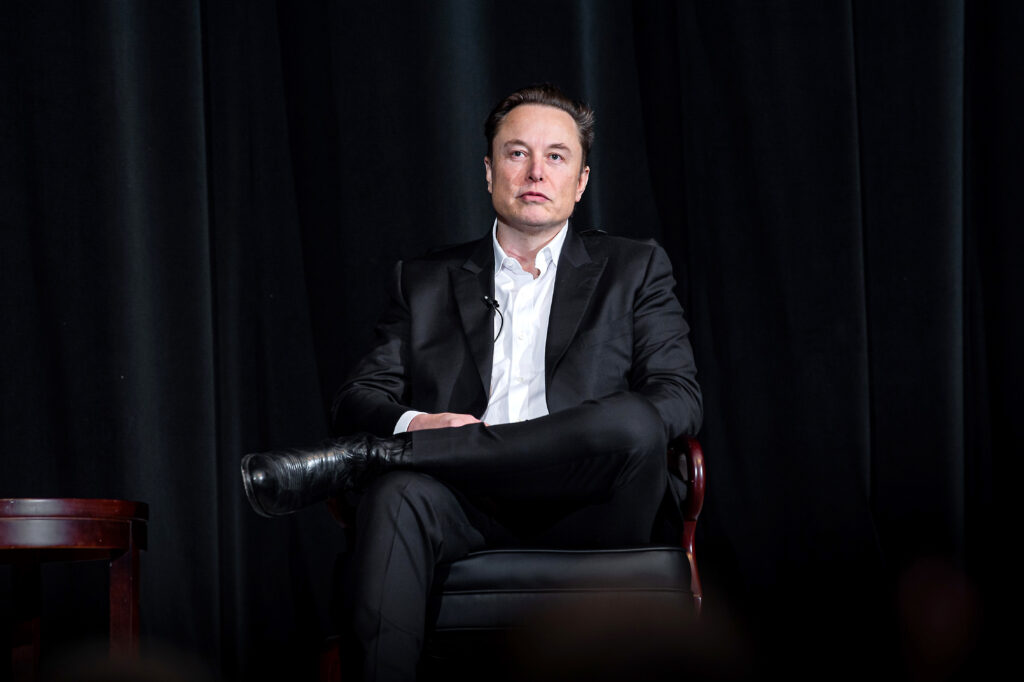The strangeness of Elon Musk’s statement explaining his Twitter purchase exposes the strangeness of billionaire “philanthropy.”
Those following the Elon Musk-Twitter saga found resolution last week in Musk’s “dad joke” tweet as he carried a sink into Twitter headquarters: “Let that sink in,” he quipped, sink in hand.
After settling on the purchase—and terminating a handful of key employees—Musk explained his interest in buying Twitter. His statement is fine, but in the middle of it he delivers this zinger of a line: “I did it for humanity, whom I love.”
In addition to being pretty harsh on the ear, “for humanity, whom I love” sounds just like what a Tesla robot would say as it shoots you—for the good of humanity, of course.
The sentence grates the ear when Musk uses the personal pronoun, “whom,” to refer to the concept, “humanity.” Whatever “humanity” is, it is not a person. It is hardly even the sum of all persons.
And yet Musk alleges that he “loves” humanity and that this love moved him to spend $44 billion acquiring Twitter.
It is, I suggest, the cacophony of the sentence that exposes the silliness of the thinking. The same sentence works just fine in any number of variations: “I did it for my wife, whom I love” . . . “for my children, whom I love” . . . “for my neighbor, whom I love.” In each of these cases, a person (or a few persons) is loved, and that love spurs action. And the resulting sentence is not atrocious.
These other sentences don’t grate the ear because they correspond to reality. The great theologian and philosopher, Saint Thomas Aquinas, defines love as “willing the good of the other.” In each of the preceding cases—a spouse, children, a neighbor—there is an other whose good can be willed.
But how can one will the good of humanity? Sure, we can hope and pray that gross evil does not befall humanity—but can we will the good of “humanity” in any meaningful sense? Humanity is not a real thing in the world. It is a concept. It is neither a person nor a group of persons. It is a fabrication of the intellect and to the extent that it exists, it exists as a thing only in the mind. Humans exist outside of the mind, but not humanity, and “the good” or flourishing does not pertain to concepts the way it pertains to persons or anything real.
And yet, Musk is not alone in his thinking here. As Jeremy Beer details in The Philanthropic Revolution, the 20th century saw a shift from “charity” to “philanthropy,” a shift from voluntary giving as love of neighbor to philanthropic giving as “primarily a tool for social change.” When one “loves mankind,” in other words, one’s giving becomes a tool first and foremost for widespread social change.
What’s interesting about the Musk statement is the way it exposes the absurdity of the mega-philanthropists from Rockefeller and Carnegie to Gates and Zuckerberg. Not only is their vision not to human scale, but their motivation is . . . off. Their vision doesn’t even work grammatically, much less in reality.
From $3 billion to cure disease to $10 billion to distribute vaccines to $44 billion to create a “digital town square,” the undertakings of the billionaire philanthropist are without real love. And their work is poorer for it.
If indeed the “philanthropist” is one who “loves mankind,” then he is one whose love has no proper object. Whether Musk’s Twitter bid was out of good will or not, it fits right in line with the other “philanthropists” of his ilk whose investments are born out of a love of humanity. It may be interesting enough to watch, but it can hardly be called an act of love.






